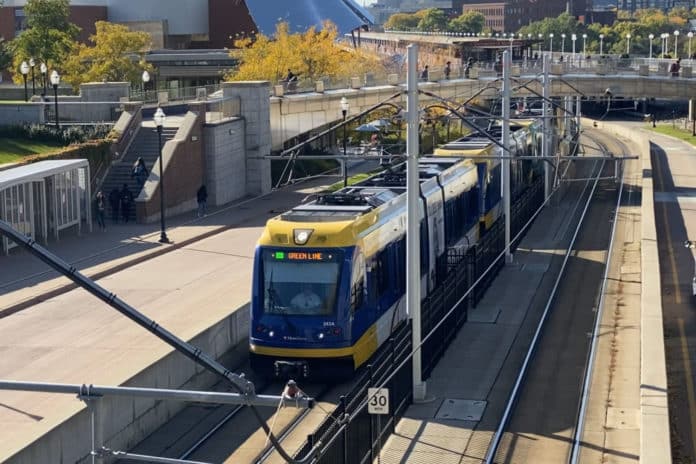
(The Center Square) — In 2019, the federal government gave the regional transit system that covers Minneapolis and St. Paul $18.3 million in federal assistance for operating expenses. In 2020, federal support increased to $176.3 million.
Metro Transit saw a large infusion of federal money into its budget at a time when ridership and fare revenue decreased by more than half, with little recovery in 2021.
The transit system, which is made up of rail and bus services, saw a large cut in passenger miles over the course of the pandemic. According to the Federal Transit Administration, from 2019 to 2020, passenger miles decreased from 338.2 million to 152 million. This is a 55% decrease.
Minnesota was under a stay-at-home order in 2020 from March 29 through May 3, though some municipalities had restrictions in place for longer.
Fare revenue from 2019 to 2020 also saw a decrease of more than 59%, from $110.9 million to $45.3 million.
In 2020, the transit agency suspended a number of services with 39 of its 61 express buses suspended due to the pandemic. In 2021, the express bus fleet was expanded to 71 buses, though 48 of those remained suspended.
Average weekday ridership also decreased from 251,564 in 2019 to 111,723 in 2020.
The Federal Transit Administration published the 2020 data that gives an insight into how transit was impacted during the first year of the pandemic.
Average weekday ridership did not recover in 2021. Instead it continued to drop to 99,217.
Despite the drop in ridership, the transit system cut operating expenses from 2019 to 2020 by only 3.1%, from $427 million to $414 million.
The transit agency did not respond to an email seeking comment.









